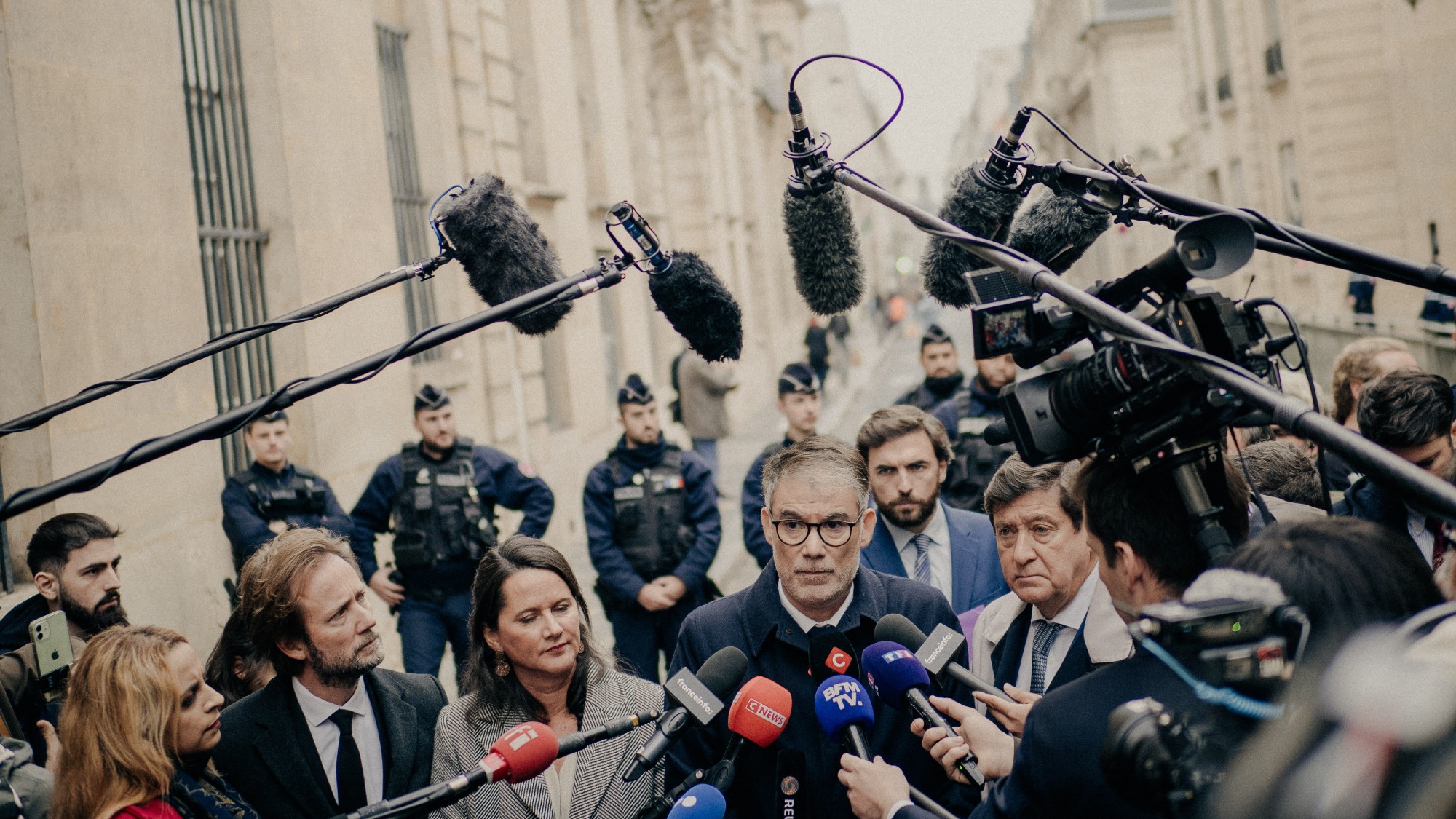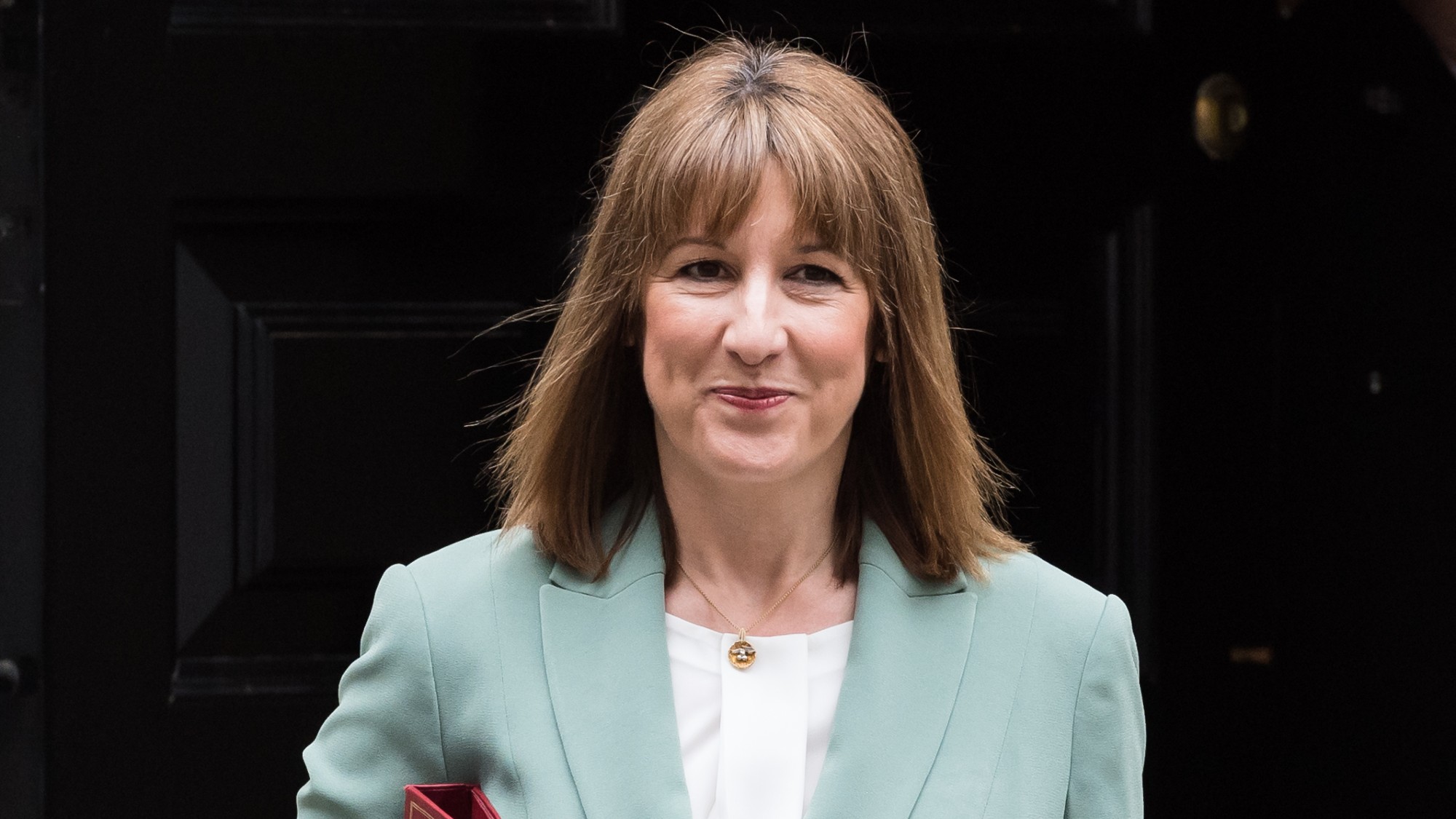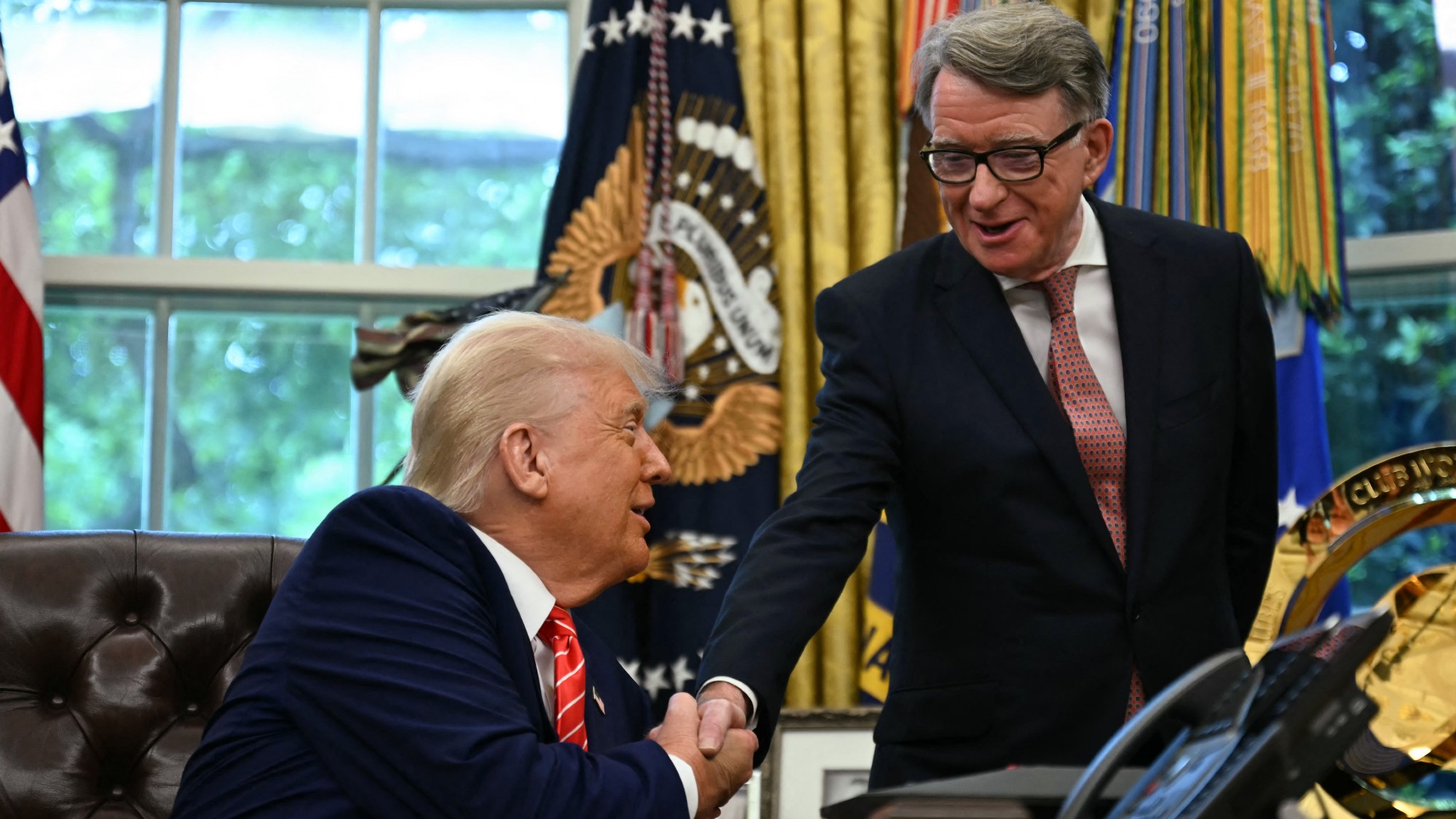Securonomics: what is Rachel Reeves' economic plan and will it work?
Focus on economic security and the resilience of industry in an uncertain world is 'key to growth', say Labour

A free daily email with the biggest news stories of the day – and the best features from TheWeek.com
You are now subscribed
Your newsletter sign-up was successful
Rachel Reeves has set out Labour's plans to bring about "a new chapter in Britain's economic history" in a major speech to business and finance leaders.
Delivering the prestigious Mais lecture in the City of London, the shadow chancellor promised to reform the Treasury, set out new details about controls on borrowing, the setting of interest rates by the Bank of England, and a new industrial strategy – all aimed at returning the UK to long-term growth.
At the heart of Reeves' offering is what she terms "securonomics". For Reeves, "it is a hands-on rebalancing between market forces and state control, tipping more power towards the latter", said Kate Andrews in The Spectator. "Governments and policymakers are recognising that it is no longer enough, if it ever was, for the state to simply get out of the way, to leave markets to their own devices and correct the occasional negative externality", said Reeves.
The Week
Escape your echo chamber. Get the facts behind the news, plus analysis from multiple perspectives.

Sign up for The Week's Free Newsletters
From our morning news briefing to a weekly Good News Newsletter, get the best of The Week delivered directly to your inbox.
From our morning news briefing to a weekly Good News Newsletter, get the best of The Week delivered directly to your inbox.
What is it?
Securonomics can be understood as "the fundamental belief that economic security must precede overtures abroad", said the Common Sense think tank. Following Brexit, Covid and the war in Ukraine, "this means securing supply chains and building production capacity in areas where the UK is currently over-reliant on other nations, particularly unfriendly ones".
Reeves is "presenting the age-old 'freedom versus security' debate in economic terms, asking us to give the latter a try", said The Spectator's Andrews. The shadow chancellor said in her speech that she is "recognising that the security and prosperity of working people is integral to the strength, dynamism and legitimacy of a market economy".
In practice, as Reeves sets out in a report released by the Labour Together group of MPs entitled A New Business Model for Britain, this entails accelerating an economic paradigm shift beyond neoliberalism towards more state intervention.
Reeves repeatedly references "modern supply-side economics" but a more suitable term for this would perhaps be "productivism", said George Dibb from the left-leaning IPPR think tank. In his paper for Renewal Dibb explains how a more active and strategic state would help "meet our carbon emissions targets whilst also capturing the economic upside through domestic reindustrialisation".
A free daily email with the biggest news stories of the day – and the best features from TheWeek.com
There are obvious parallels with the so-called "Bidenomics" policies pursued under the current administration in the US, "but the shadow chancellor hopes to achieve the same green growth, without the significant levels of borrowing", said BBC economics editor Faisal Islam.
Instead, he said, "investment will be needed from private companies across all of industry, enticed by significant changes to planning and industrial policy".
Will it work?
Securonomics as a slogan "may not win any political campaign awards", said Richard Partington in The Guardian, "but it has landed with industry".
Tuesday's speech was "designed to be a deliberate embrace of the private sector and how it can partner with the government", said The Telegraph, and forms part of a "two-way charm offensive between the opposition and major businesses, as an election starts to loom", said Islam.
But for securonomics to work in practice, Reeves "understands that winning the war on the domestic battlefield is only part of the solution", said communications consultancy Grayling. Underpinning her recent trip to the US is the belief that "garnering the support of international advocates is essential to persuading the UK electorate that she and Keir Starmer have the credibility for leadership – and that one time worries of capital flight and a crumbling pound under Labour are no longer rooted in political reality".
Unlike the US, however, the UK "simply does not have the financial firepower to invest in the way seen with the Inflation Reduction Act, which secures jobs through green transition and a more strategic geopolitical stance", said Andrew Pakes, deputy general secretary of Prospect trade union, and university lecturer Frederick Harry Pitts on Labour List.
It is perhaps better, he said, to look to nearer neighbours such as established industrial economies like Sweden and Germany. These models would recast Britain "as a producer of goods, energy and resources and a trading partner of trusted allies, promising an economy that provides sustainable, skilled livelihoods in a range of productive, social, and extractive industries".
-
 Bad Bunny’s Super Bowl: A win for unity
Bad Bunny’s Super Bowl: A win for unityFeature The global superstar's halftime show was a celebration for everyone to enjoy
-
 Book reviews: ‘Bonfire of the Murdochs’ and ‘The Typewriter and the Guillotine’
Book reviews: ‘Bonfire of the Murdochs’ and ‘The Typewriter and the Guillotine’Feature New insights into the Murdoch family’s turmoil and a renowned journalist’s time in pre-World War II Paris
-
 Witkoff and Kushner tackle Ukraine, Iran in Geneva
Witkoff and Kushner tackle Ukraine, Iran in GenevaSpeed Read Steve Witkoff and Jared Kushner held negotiations aimed at securing a nuclear deal with Iran and an end to Russia’s war in Ukraine
-
 How prediction markets have spread to politics
How prediction markets have spread to politicsThe explainer Everything’s a gamble
-
 Is the UK headed for recession?
Is the UK headed for recession?Today’s Big Question Sluggish growth and rising unemployment are ringing alarm bells for economists
-
 Should Labour break manifesto pledge and raise taxes?
Should Labour break manifesto pledge and raise taxes?Today's Big Question There are ‘powerful’ fiscal arguments for an income tax rise but it could mean ‘game over’ for the government
-
 Autumn Budget: will Rachel Reeves raid the rich?
Autumn Budget: will Rachel Reeves raid the rich?Talking Point To fill Britain’s financial black hole, the Chancellor will have to consider everything – except an income tax rise
-
 French finances: what’s behind country’s debt problem?
French finances: what’s behind country’s debt problem?The Explainer Political paralysis has led to higher borrowing costs and blocked urgent deficit-reducing reforms to social protection
-
 Pros and cons of a wealth tax
Pros and cons of a wealth taxPros and Cons Raising revenue and tackling inequality vs. the risk of capital flight and reduced competitiveness
-
 Is Rachel Reeves going soft on non-doms?
Is Rachel Reeves going soft on non-doms?Today's Big Question Chancellor is reportedly considering reversing controversial 40% inheritance tax on global assets of non-doms, after allegations of 'exodus' of rich people
-
 The UK-US trade deal: what was agreed?
The UK-US trade deal: what was agreed?In Depth Keir Starmer's calm handling of Donald Trump paid off, but deal remains more of a 'damage limitation exercise' than 'an unbridled triumph'